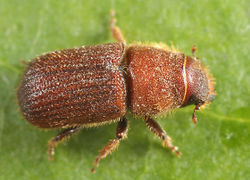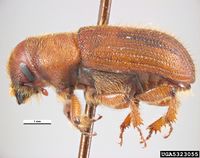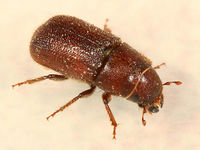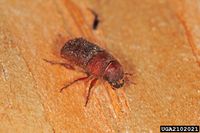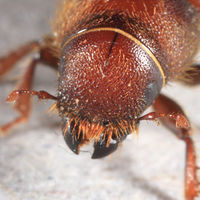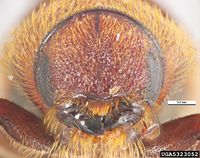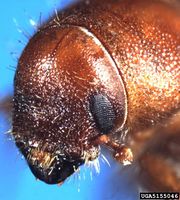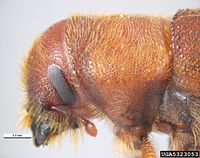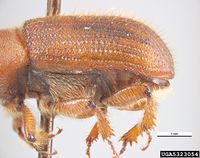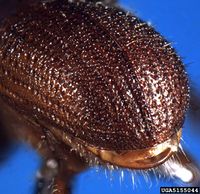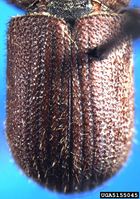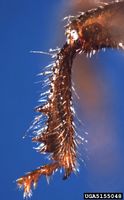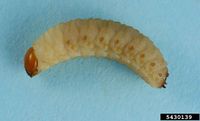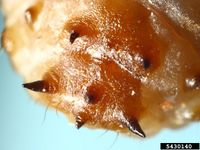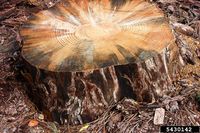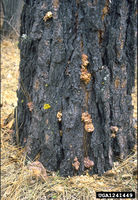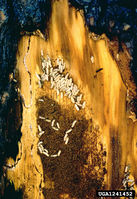Difference between revisions of "Dendroctonus valens"
| Line 1: | Line 1: | ||
| − | {{ | + | {{TaxLinks|LnkDendroctonus}} |
{{LiteratureDB|{{PAGENAME}}|browse,benefialsN}} | {{LiteratureDB|{{PAGENAME}}|browse,benefialsN}} | ||
[[File:Dendroctonus_valens_BugGuide629561.jpg|250px|thumb|''Dendroctonus valens'' (click on image to enlarge it)<br />Author(s): Tom Murray<br />Source: [http://bugguide.net/node/view/629561 BugGuide]]] | [[File:Dendroctonus_valens_BugGuide629561.jpg|250px|thumb|''Dendroctonus valens'' (click on image to enlarge it)<br />Author(s): Tom Murray<br />Source: [http://bugguide.net/node/view/629561 BugGuide]]] | ||
Revision as of 14:28, 31 July 2014
| Literature database |
|---|
| 89 articles sorted by: |
| • year (recent ones first) |
| • research topics |
| • countries/regions |
| • list of natural enemies |
Dendroctonus valens LeConte, 1860 (red turpentine beetle)
is a large bark beetle, native to North America where it is usually a minor pest of pine trees and attacks mainly injured or stressed trees. However, the recent accidental introduction into China in the 1990s has led to the death of millions of pine trees. Attacked trees are characterized by the large red pitch tubes near the base of the tree and yellowing of the needles.
Mass attacks of trees overwhelm the host defence system and are coordinated through aggregation pheromones. Once beetles have reached a sufficient density, they switch to antiaggregation pheromones to avoid overpopulations.
| Vernacular names | |
|---|---|
| • English: | red turpentine beetle |
| • Français: | dendroctone rouge de l'épinette |
The adult is reddish-brown, females are 6-10 mm long, males 5-8 mm. Both larvae and adults feed on the phloem of the host tree. The lower parts of the trunk and the roots are attacked. Infestations are assisted by the invasion of sapstain fungi like Leptographium procerum which are vectored by the beetle.
- Other images of Dendroctonus valens (IPM Images and BugGuide - click to enlarge)
